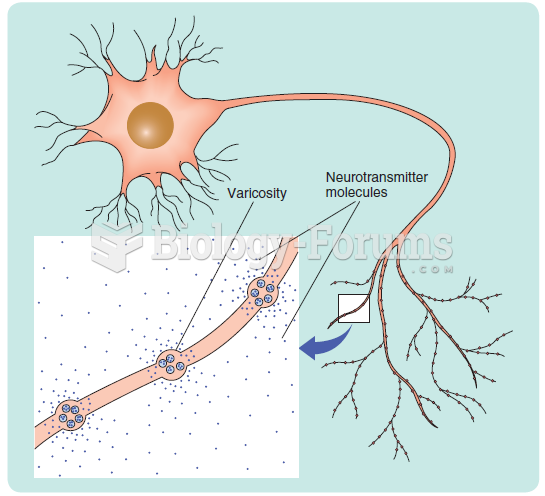|
|
|
Fewer than 10% of babies are born on their exact due dates, 50% are born within 1 week of the due date, and 90% are born within 2 weeks of the date.
Anti-aging claims should not ever be believed. There is no supplement, medication, or any other substance that has been proven to slow or stop the aging process.
Eat fiber! A diet high in fiber can help lower cholesterol levels by as much as 10%.
Pregnant women usually experience a heightened sense of smell beginning late in the first trimester. Some experts call this the body's way of protecting a pregnant woman from foods that are unsafe for the fetus.
It is believed that humans initially contracted crabs from gorillas about 3 million years ago from either sleeping in gorilla nests or eating the apes.
 Bacterial colonies, each derived from a single cell Bacterial colonies, each derived from a single c
Bacterial colonies, each derived from a single cell Bacterial colonies, each derived from a single c
 Structure of the ovary and uterine (fallopian) tube. Figure illustrates stages of ovum development a
Structure of the ovary and uterine (fallopian) tube. Figure illustrates stages of ovum development a
 Hormonal control of adrenal gland. CRH = corticotropin releasing hormone; ACTH = adrenocorticotropic ...
Hormonal control of adrenal gland. CRH = corticotropin releasing hormone; ACTH = adrenocorticotropic ...




